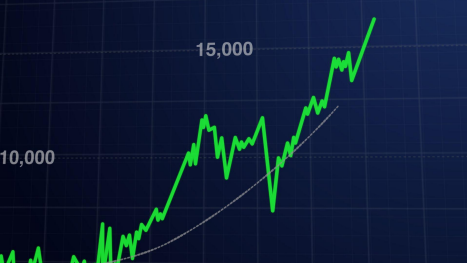Exploring International Stock Markets: Diversifying Beyond Domestic Boundaries
Introduction
In today's global economy, exploring international stock markets has become a major strategy for investors planning to diversify their portfolios. For some context, International stock markets refer to exchanges outside an investor's home country where securities are bought and sold.
And diversification means, the practice of spreading investments across different asset classes and regions, which is crucial for managing risk and enhancing potential returns.
By venturing beyond home countries, investors can unlock many potential benefits, including reduced risk because of global diversification, access to a broader range of investment opportunities, types of companies, exposure to different economic cycles and industries, and the potential for higher returns.
Benefits of International Stock Market Diversification

One of the primary advantages of international stock market diversification is reduced risk It may depend on the markets you invest). By investing in stocks in various countries, investors can reduce the impact of local economic or political events that may negatively affect a specific market.
Diversification in international markets can also help you know different types of companies and investment opportunities, enabling you to capitalize on emerging markets, new industries, and companies that are not available in your home country.
Another advantage of international stock market diversification is you can take advantage of different economic, political, and technological cycles. For ex. Many countries are getting access to technology right now resulting in more development in coming years, opening gates to great results.
Factors to Consider When Exploring International Stock Markets

While international diversification presents numerous benefits, investors must consider several key factors. Market size and liquidity are crucial considerations, as larger and more liquid markets offer greater ease of trading and reduced transaction costs.
Political and regulatory environments vary across countries, impacting market stability and investor protection. Currency risks and exchange rate fluctuations can significantly impact returns, requiring investors to carefully assess and manage these risks. Cultural and language differences can also pose challenges, necessitating a deep understanding of local customs, business practices, and market dynamics. Lastly, information accessibility and transparency may vary, and investors must have reliable sources of information to make informed decisions.
Ways to Access International Stock Markets

There are several avenues for investors to access international stock markets. One option is a direct investment in foreign stocks, which involves buying individual shares listed on international exchanges. Another approach is to invest in global mutual funds and exchange-traded funds (ETFs), which provide diversification across multiple markets and industries.
American depositary receipts (ADRs) offer an opportunity to invest in foreign companies indirectly through U.S. exchanges. Additionally, international brokerage accounts provide access to a wide range of global investment opportunities and often offer research and trading platforms tailored for international investors.
Strategies for Successful International Stock Market Investing

Successful international stock market investing requires careful planning and execution. Conducting thorough research and due diligence is essential to understand the dynamics of foreign markets, including the political, economic, and regulatory landscape. Building a diversified portfolio across countries and regions helps spread risk and capture potential opportunities.
Monitoring global economic and geopolitical trends allows investors to adapt their strategies accordingly. Managing currency risks through hedging or other techniques is crucial to mitigate the impact of exchange rate fluctuations. Staying informed about local market conditions and regulations ensures compliance and timely decision-making.
Challenges and Risks of Investing in International Stock Markets
Investing in international stock markets is not without its challenges and risks. Political instability and geopolitical risks can create uncertainties that impact investment performance. Currency fluctuations and exchange rate risks can erode returns or create unexpected gains.
Legal and regulatory complexities in foreign markets require investors to navigate unfamiliar rules and procedures. Cultural and communication barriers can hinder effective investment decision-making and relationship-building. But you should take note that many international many exhibits certain inefficiencies which you may not figure out because you aren't that familiar with the country/company’s situations.
International Stock Market Diversification

There are some stories of people investing in international markets during covid and getting good returns. For instance, Some international markets work opposite to S&P 500, So if S&P goes down that market goes up.
Another example would be investing in developing countries like India, China, Brazil, and some African countries, they show great potential, and many markets are giving exponential results. Similarly, investing in global technology companies has proven lucrative for investors seeking exposure to innovative industries and market leaders.
Furthermore, sector-specific opportunities in foreign markets, such as renewable energy or healthcare, have yielded attractive returns for savvy investors who capitalized on favorable industry trends in specific countries.
Conclusion
Exploring international stock markets is a compelling strategy for investors looking to diversify beyond domestic boundaries. By venturing into global markets, investors can reduce risk,
access a broader range of investment opportunities, gain exposure to different economic cycles and industries, and potentially achieve higher returns.
However, careful consideration of factors such as market size, political stability, currency risks, and cultural differences is crucial for successful international investing. With thoughtful planning, diligent research, and proactive risk management, investors can navigate the complexities of international markets and reap the benefits of diversification in their investment portfolios.
Are you interested in staying informed about American markets and maximizing your investment opportunities? Stay ahead of the game with our cutting-edge earnings call app!
EarningsCall is the ultimate tool for investors seeking to navigate the global marketplace. Whether you're a seasoned trader or a beginner exploring international investment opportunities, our app provides real-time access to earnings calls from popular exchanges like NYSE and NASDAQ.
With EarningsCall, you'll gain invaluable insights into financial performance and future prospects.
